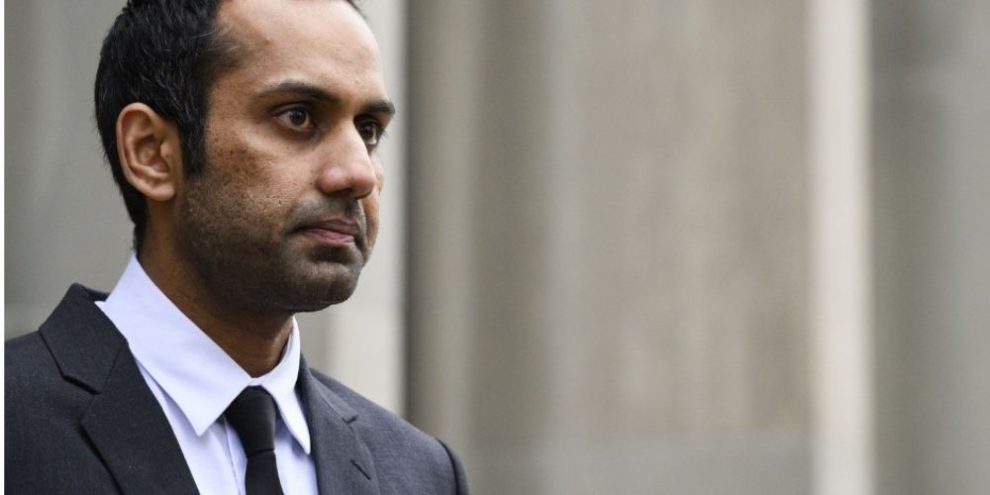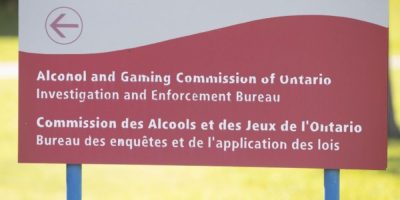
An innocent man could have spent years in jail had a judge not granted him bail, a civil liberties advocate said Monday, as lawyers warned that Umar Zameer's case underscores the risks of political leaders weighing in on bail decisions.
A jury found Zameer not guilty Sunday in the death of Toronto police Const. Jeffrey Northrup, who was run over in an underground parking garage in July 2021.
Zameer was granted bail some months later — a decision that drew public criticism from Ontario Premier Doug Ford, who at the time called his release "beyond comprehension" and "completely unacceptable."
But it wasn't until the jury was sequestered last week that Canadians learned just how weak the case against Zameer had turned out to be.
Shakir Rahim, who directs the criminal justice program at the Canadian Civil Liberties Association, said Zameer's case underscores why bail is "essential" to protect Canadians, even those charged with the most serious of crimes.
"Without bail, Mr. Zameer — an innocent man — would have spent three years in jail," he said. "This case is not unusual. Half of criminal cases in Canada do not result in a guilty verdict."
Ontario Superior Court Justice Jill Copeland, who is now an Appeal Court judge, said in her 2021 ruling she found the case against Zameer "weak," noting in particular that the lack of evidence regarding motive was a "significant weakness."
Former Toronto mayor John Tory also spoke out against his release. Since the verdict, he's acknowledged having learned lessons from the ordeal, according to a report from The Toronto Star.
At the time, Ford cited Zameer's release as an example of the justice system needing "to get its act together," and put "victims and their families ahead of criminals."
The premier struck a decidedly different tone Tuesday.
"It's a very sad situation that happened and I respect the court's decision. My heart goes out to Margaret and her family as well," he said, a reference to Northrup's widow.
"At that time I had limited information. The courts have decided, the jury decided and you have to respect the justice system."
The initial outrage of Zameer's release mirrors long-standing complaints many political and police leaders have voiced when it comes to an accused person's ability to access pre-trail detention.
Rising anxieties about public safety coming out of the COVID-19 pandemic, coupled with several violent crimes allegedly committed by individuals who were released on bail, have seen the political debate over bail spike in recent years.
Conservative Leader Pierre Poilievre has disavowed Prime Minister Justin Trudeau's record on crime and promised to better target repeat violent offenders.
Calls from premiers and police chiefs to tighten up an accused's ability to access bail, particularly if they have a criminal history, prompted the federal Liberals to pass a suite of bail reforms, such as expanded use of reverse-onus provisions for certain offenders.
That means instead of a Crown prosecutor having to prove in court why an accused person should stay behind bars until their trial, the person who has been charged has to show why they should be released.
The provision was expanded to include more firearms and weapons offences, and more circumstances in which the alleged crime involves intimate partner violence.
Boris Bytensky, president of the Criminal Lawyers' Association, says the case of Zameer differs from the current debate as he had no prior criminal history.
However, he says, the matter offers a perfect teachable moment for political leaders who want to use bail as a "marketing tool" for their own political advantage.
"The mere fact that you're making comments as public officials ... it really harms the reputation in the system of justice," Bytensky said in an interview Tuesday.
"It doesn't help give respect to the system of justice, which is ultimately what we need. ... If the public doesn't respect this system of justice and individual judges, they're not going to have respect for the law."
Ford's original comments have since been proven meritless, the Federation of Ontario Law Associations said in a statement.
It's unacceptable for leaders "to spread misinformation about our criminal justice system and to score cheap political points at the expense of courts and judges," said Douglas Judson, chair of the federation.
Not only do politicians lack the facts to talk about specific bail decisions, but when they do, it hurts the reputation of the justice system and the presumption of innocence, Bytensky said.
Zameer's case provides an opportunity to better educate Canadians about how the system works and what "presumed innocent" really means, he added.
"We pay lip service to the presumption of innocence, but I don't think we really consider it," Bytensky said.
After the jury's verdict came down Sunday, the judge went so far as to apologize to Zameer for what he'd been forced to endure.
Rahim says when political leaders use their platforms to speak out against bail decisions, "it risks inflaming public opinion," which can raise concerns about an accused's right to a fair trial.
Daniel Brown, a defence lawyer and former president of the Criminal Lawyers' Association, previously told The Canadian Press the fact Ford and others weighed in on Zameer's case created a "false narrative" that affected how the public viewed Zameer.
Banner image: Umar Zameer is seen during a press conference following his not-guilty verdict, in Toronto, Sunday, April 21, 2024.
This report by The Canadian Press was first published April 23, 2024.





